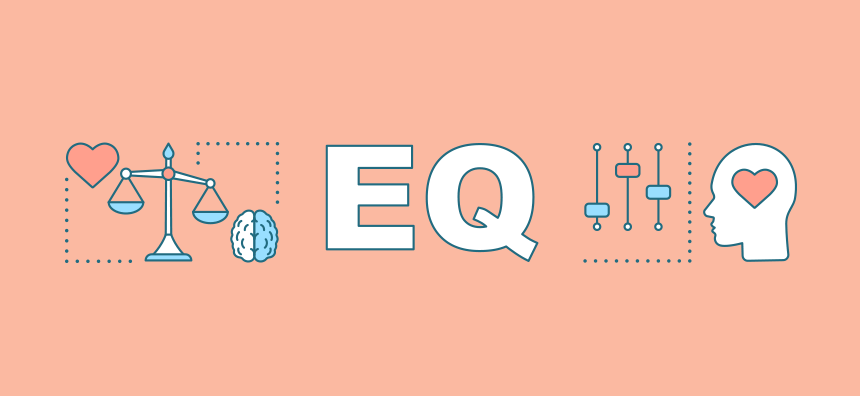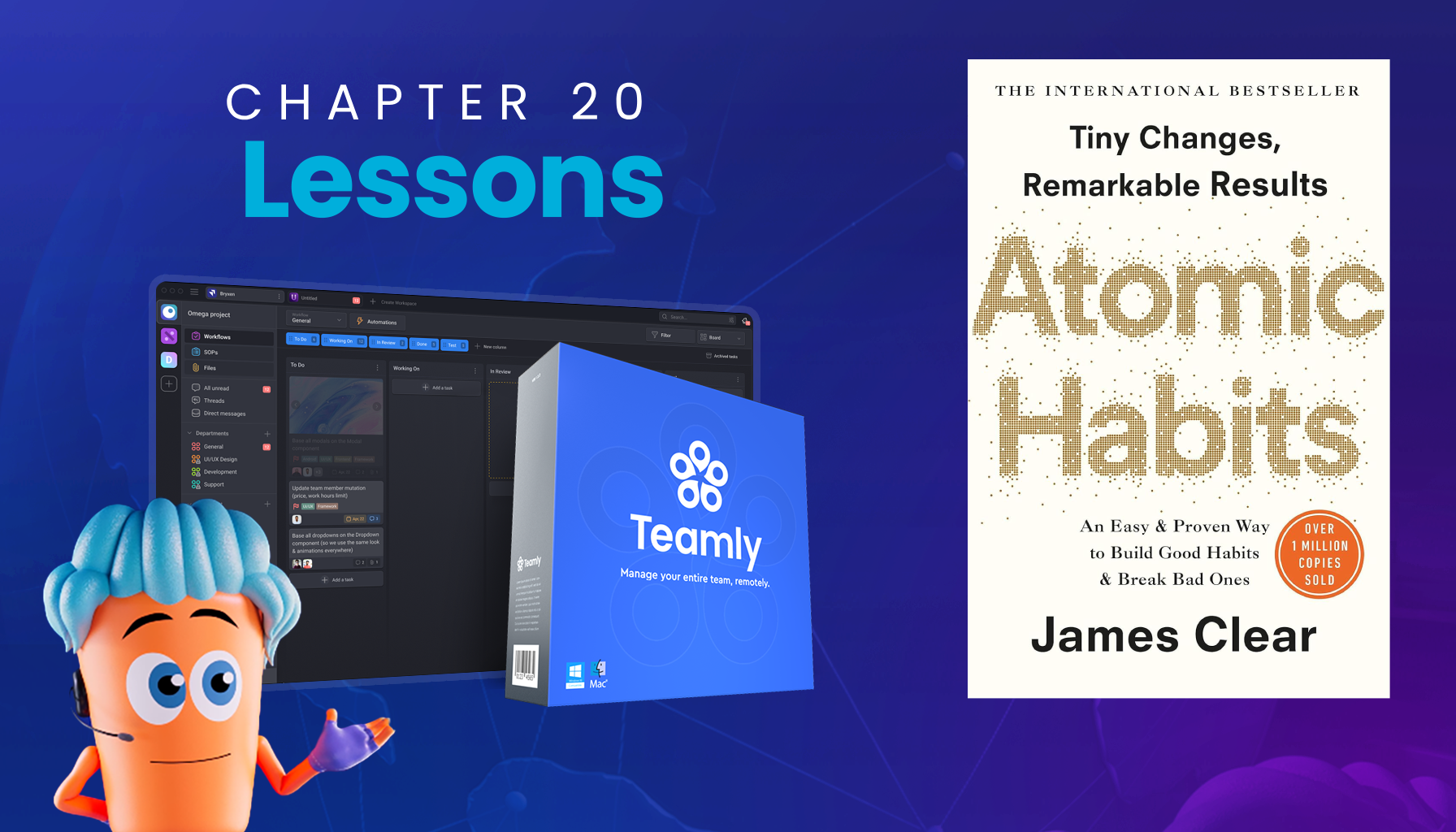
Click the button to start reading
Emotional Intelligence in Project Management: Why it matters.
You know that there are a million things that can go wrong during a project, and mismanaged emotions are frequently at the core of many of them.
Emotional upheaval can quickly undo even the most carefully laid plans when employees or customers are unable to meet deadlines or are dissatisfied with the ultimate product.
To successfully navigate unruly emotions, its important for you to have a clear understanding of the role that emotions play in project management. Only then can you develop strategies for dealing with emotional disruptions, whether they come from within your team or from outside stakeholders. By learning to manage these emotions, you (or other project managers) can ensure that your projects stay on track, regardless of the challenges that arise.
This article will teach you about the significance of emotional intelligence in project management and how to make use of it to meet the demands of your job and team.

What is Emotional Intelligence?
Before we dive into how emotional intelligence can help you and your projects, it’s important to first understand what emotional intelligence is.
DEFINED: Emotional intelligence is the ability to be aware of and understand your own emotions and the emotions of others. It also includes the ability to regulate these emotions, respond effectively to them, and create positive relationships.
People with high emotional intelligence can control their emotions, even in difficult situations. They’re also good at reading the emotions of others and responding accordingly. This is vital in project management because it allows you to effectively manage team dynamics, understand customer needs, and make decisions that will keep everyone happy.

History of Emotional Intelligence
In 1990, two psychologists, John D. Mayer and Peter Salovey, coined the phrase “emotional intelligence.” They defined emotional intelligence as “a form of social intelligence that involves the ability to monitor one’s own and others’ feelings and emotions, to discriminate among them, and to use this information to guide one’s thinking and actions.”
Mayer and Salovey’s work was based on earlier theories of intelligence, including those propounded by French psychologist Alfred Binet and British psychologist Charles Spearman. These theorists believed that there were two types of intelligence: fluid intelligence, which is the ability to reason abstractly, and crystallized intelligence, which is the ability to use knowledge acquired through experience.
Mayer and Salovey’s model of emotional intelligence included four components:
- perceiving emotions
- using emotions
- understanding emotions
- managing emotions
In 1997, psychologist Daniel Goleman brought the notion of emotional intelligence to light with his book Working with Emotional Intelligence. He claimed that emotional intelligence is more important than IQ in predicting success in life. He also identified five key elements of emotional intelligence:
- self-awareness
- self-regulation
- motivation
- empathy
- social skills
Goleman’s model of emotional intelligence has been widely accepted and is the one most commonly used today.
Now that we’ve reviewed the basics of emotional intelligence, let’s take a look deeper into each of the components.

How can emotional intelligence help you with project management?
Project managers need to wear many hats. In addition to being responsible for the overall success or failure of a project, they also need to be able to juggle multiple tasks, stakeholders, and deadlines. This can often lead to high levels of stress, which can make it difficult to stay calm and focused.
Emotional intelligence can help project managers in several ways.
First, emotional intelligence gives you as the project manager the ability to regulate your own emotions. This means that you can stay calm and collected even in the face of adversity. This is important for making clear-headed decisions and keeping a level head when dealing with difficult team members or clients.
Second, emotional intelligence aids in the development of interpersonal relationships both with and between your team members. This is important for building trust, maintaining morale, and ensuring that everyone is working towards the same goal.
Third, emotional intelligence allows you to better understand the emotions of others. This can be helpful in identifying and resolving conflict, managing customer expectations, and making sure that everyone is on the same page.
Fourth, emotional intelligence can help you better manage stress. This is important because, as we mentioned before, project managers often have to deal with high levels of stress.
Fifth, emotional intelligence can improve your decision-making skills. This is because you’ll be able to take into account not only the facts of a situation but also the emotions of those involved. This will help you to make more informed decisions that take into account the needs of everyone involved.
Sixth, emotional intelligence gives project managers the ability to communicate effectively. This is important for conveying information clearly, giving instructions, and resolving conflicts.
Lastly, emotional intelligence allows project managers to create a positive work environment. This is done by maintaining a positive attitude, encouraging teamwork, and motivating others.
Emotional intelligence is a valuable skill for project managers. By understanding and managing their own emotions, they can stay calm under pressure, make better decisions, build strong relationships, and create a positive work environment.

How to Improve Emotional Intelligence…
Using Goleman’s framework from above, emotional intelligence can be broken down into five key components:
- Self-awareness: The ability to recognize and understand your own emotions and moods.
- Self-regulation: The ability to control your emotions and reactions.
- Motivation: The ability to be driven and stay focused on your goals.
- Empathy: The ability to understand and share the emotions of others.
- Social skills: The ability to build relationships, communicate effectively, and resolve conflicts.
Each of these five components is important in its own right, but they also work together to create a well-rounded emotional intelligence.
Self-Awareness
The first and perhaps most important component of emotional intelligence is self-awareness. Without self-awareness, it’s impossible to regulate your emotions or understand the emotions of others.
Self-awareness starts with being able to label your emotions. You can’t regulate something if you don’t know what it is. For example, if you’re feeling angry, ask yourself why. Is it because someone said something that bothered you? Did something happen that made you feel frustrated?
Once you’ve labeled your emotions, it’s important to understand how they impact your thoughts and behavior. Do your emotions affect the way you interact with others? Do they make it difficult for you to focus on your work?
It’s also important to be aware of your triggers, or the things that set off your emotions. If you know what sets off your emotions, you can be prepared for them and, hopefully, avoid them.
Self-Regulation
The second component of emotional intelligence is self-regulation. This is the ability to control your emotions and reactions.
One way to regulate your emotions is to take a step back and count to 10 before you respond to someone or something. This gives you time to think about your reaction and, hopefully, avoid saying or doing something you’ll regret.
Another way to regulate your emotions is to find an outlet for them. If you’re feeling angry, go for a run or punch a pillow. If you’re feeling sad, write in a journal or listen to music.
It’s also important to know your limits. If you’re feeling overwhelmed, take a break. Step away from the situation and come back when you’ve had a chance to calm down.
Motivation
The third component of emotional intelligence is motivation. This is the ability to be driven and stay focused on your goals.
One way to stay motivated is to set small, achievable goals. If you’re working on a big project, break it down into smaller tasks that you can complete. Checking items off of your to-do list will help you feel like you’re making progress and keep you motivated to keep going.
It’s also important to find an activity or hobby that you’re passionate about. Doing something you enjoy will make it easier to stay motivated.
Empathy
The fourth component of emotional intelligence is empathy. This is the ability to understand and share the emotions of others.
If you’re trying to build empathy, one way to do it is to put yourself in someone else’s shoes. Try to see things from their perspective. Why might they be feeling the way they are? What experiences do they have that might be causing them to react the way they are?
Another way to build empathy is to simply listen. Sometimes, people just need to vent and feel heard. If someone is upset, let them talk and resist the urge to offer advice or try to fix the problem.

Social Skills
The fifth and final component of emotional intelligence is social skills. This is the ability to build relationships, communicate effectively, and resolve conflicts.
One way to build social skills is to practice active listening. When someone is speaking, really try to listen to what they’re saying and understand their perspective.
It’s also important to be aware of your nonverbal communication. Your body language, facial expressions, and tone of voice can all impact the way someone perceives you. If you want to come across as friendly and approachable, make sure your body language is open and your facial expressions are warm.
Finally, it’s important to be able to resolve conflicts. When you have a disagreement with someone, try to find a compromise that both of you can agree on.
Conclusion
Emotional intelligence is a valuable skill for project managers. By understanding and utilizing emotional intelligence, you can build better relationships, manage stress more effectively, and make better decisions. This, in turn, will lead to more successful projects.
If you’re interested in learning more about emotional intelligence, there are a number of resources available. We’ve listed a few of our favorites below.
- Emotional Intelligence 2.0 by Travis Bradberry and Jean Greaves
- Working with Emotional Intelligence by Daniel Goleman
- The Emotionally Intelligent Manager by David Caruso and Peter Salovey
















